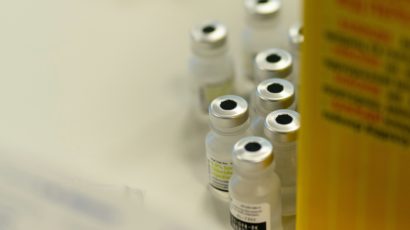Posted by Dr Michelle Wright
Understanding diabetes
World Diabetes Day is celebrated every year on 14th November. A global diabetes awareness campaign, the focus this year is to raise awareness of those at risk of developing diabetes with the hope of delaying, or even preventing, its onset. As well as to increase understanding of the complications of diabetes with the aim of early detection and treatment.
What is diabetes?
As a reminder, diabetes is a condition when a person’s blood sugar becomes too high. There are two different types: type 1 and type 2.
Type 1 diabetes is a lifelong condition where the body’s immune system attacks and destroys the cells that produce insulin, the hormone that’s needed to regulate blood sugar. With type 2 diabetes, the body doesn’t produce enough insulin, or the body’s cells don’t react to insulin properly.
What are the statistics?
I was quite shocked when I learnt the latest stats around the numbers of people living with diabetes. Globally, it’s 1 in 10 adults. And of these, over 90% have type 2 diabetes.
But what’s even more shocking is that almost half of adults with diabetes don’t know they have it – they haven’t been diagnosed. So, they’re not receiving the treatment and support they need, and they’re at risk of developing serious complications.
And then another stat involving huge numbers of people: an additional 541 million adults around the world are at high risk of developing diabetes in the future if nothing is done about it.
What are the symptoms?
The symptoms of diabetes are caused by the high levels of glucose in the blood.
They can include feeling thirsty, needing to pass urine more frequently, feeling tired, weight loss, itchy skin and rashes, and blurred vision.
What are the risk factors?
Thinking specifically about type 2 diabetes, risk factors include:
- Increasing age.
- A family history of the illness.
- Being overweight, and particularly carrying excess fat around the middle.
- Leading an inactive lifestyle.
- Eating an unhealthy diet, low in fresh vegetables and fibre, high in sugar and fat, and high in processed and fast foods.
- Smoking and high blood pressure.
- And being from a Black African, African Caribbean and South Asian (so, Indian, Pakistani or Bangladeshi) background.
There’s a great tool on the World Diabetes Day website that allows you to assess your individual risk. Check your diabetes risk here: https://worlddiabetesday.org/type-2-diabetes-risk-assessment/
I’ve mentioned the risk factors, but regular listeners know that I’m a great advocate for ‘prevention is better than cure’.
How to mitigate risk factors
It’s possible to mitigate many of the risk factors for type 2 diabetes by choosing to live a healthy lifestyle – in particular, eating a healthy balanced diet, ensuring regular physical activity, weight management, and watching your alcohol intake.
Diabetes can be diagnosed with a simple blood test to measure blood glucose (blood sugar) levels.
What is the treatment for diabetes?
And in terms of treatment, those with type 1 diabetes need regular insulin injections for the rest of their life. But type 2 diabetes may be managed with healthy lifestyle choices. Some people can reverse their diabetes by losing weight. But for others, the illness gets worse over time, and they may need medication, usually in the form of tablets or injections.
It’s so important that diabetes is diagnosed and treated because this can reduce the risk of complications developing, including problems with eyesight, skin ulcers and infections (particularly on the feet), heart attack and stroke, and kidney damage.
So again, coming back to the focus of World Diabetes Day this year – awareness raising, and increased understanding of what diabetes is, and how it can affect you, with the aim of early detection and treatment as well as pushing for people with diabetes to have the access to the care, support, and information they need to stay well.





